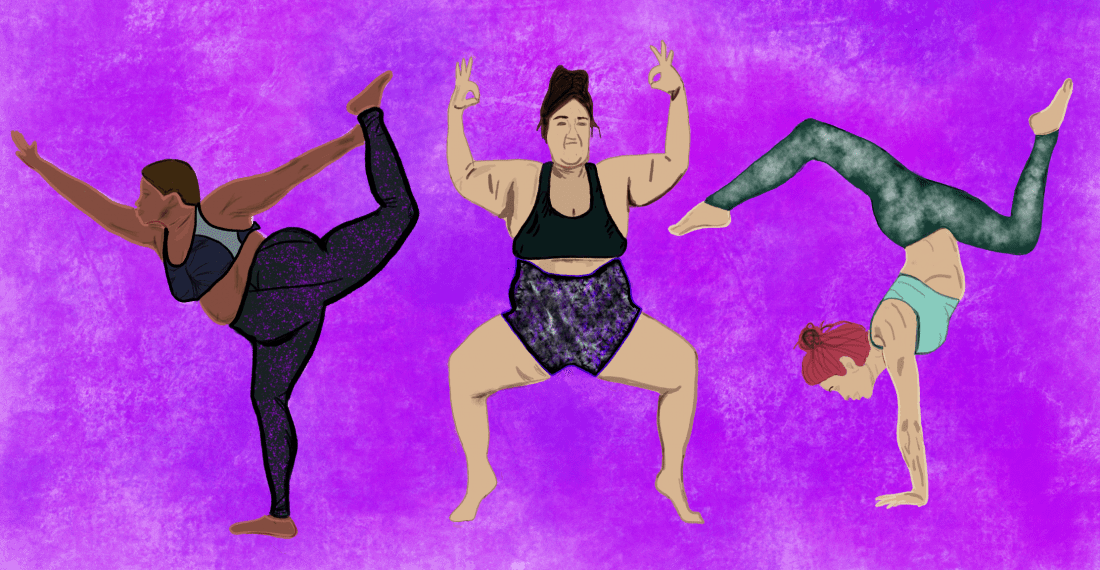
Social media and popular culture promote the concepts that thin is good, fat is bad and diets are healthy. Earn your food by burning calories, buy this detox/diet tea, do this cleanse, and so on. All of this messaging can be harmful — but thankfully, there are people fighting back.
Behaviours such as restricting, purging, fasting, obsessive dieting and labelling foods as good or bad are so normalized in our culture that people often don’t see them as destructive for a person’s physical, emotional and mental well-being.
Every year, Eating Disorder Awareness Week runs from Feb. 1 to 7. As part of this week, there was a workshop about a non-diet and weight-inclusive approach to wellness on Feb. 6 led by registered dietician Amy Pickering from the Student Wellness Centre. The workshop focused on intuitive eating, redefining your relationship with food and learning about body neutrality.
“Eating and body-image concerns and issues occur on a continuum — it’s not like there are the people with eating disorders over there, and everyone else are like normal people over here,” Pickering said during her workshop. “People can fluctuate along this continuum whether it’s days, months, years or within a day.”
The more somebody engages in dieting or restrictive behaviour, the more skewed their hunger-fullness cues become. Diets have been shown to result in increased irritability, low mood and gaining more weight than initially lost.
Diet paradigms are very rigid and reject many foods whereas the non-diet paradigm welcomes all foods. Diets often involve selecting foods from specific food groups and not allowing yourself to eat them in an attempt to lose weight. Removing foods from your diet, placing them on a pedestal and not allowing yourself to eat them can often lead to bingeing on these foods later.
Mindful eating is not anti-health, giving up, eating whatever whenever or not caring about nutrition — despite what some people may think.
“Mindful eating isn’t so much about the end goal or the behaviour. It’s more about the process and the fact that you’re aware,” Pickering said. “You have to remove judgement for mindfulness — [which] allows us to think clearly and really see the facts — from that place, [so] we can make choices based on the facts rather than a guilt-ridden state.”
Giving yourself the permission to eat anything is an attempt to interrupt the guilt-shame pattern. The purpose isn’t to completely rid yourself of feelings of guilt — it is to acknowledge those feelings of guilt, recognize that you are not defined by that guilt and then choose to do something based on that recognition. It’s not about what the right choice is — it’s about seeing what your choices are and deciding which choice to make from a clear mindset.
Research suggests that everyone has a natural weight range where they function best, which their body fights to maintain. This weight is maintained with regular eating and movement while following hunger and fullness cues. This natural weight range is estimated to be 70 per cent genetic, so suggesting that eating less and moving your body more will decrease your weight healthily is not necessarily true.
Studies have shown that you can be in any weight range and still be healthy. Health At Every Size is a movement that raises awareness for larger-bodied individuals who are treated unfairly for their size. It is rooted in respecting everyone’s bodies, being aware of the assumptions around weight and health, and valuing science as well as lived experiences.
Diet culture is very systemic as it doesn’t just affect people on an individual level. It is the dominant culture in our society and has become so ingrained in our minds that it can be incredibly difficult to love your own body. A lot of people find it difficult to even accept their body as it is without feeling self-hatred.
“Body neutrality is a really nice concept — looking at body neutrality as ‘I’m just neutral towards my body’ or ‘I don’t need to love it to take care of it’ or ‘I’m gonna have some bad body days and that’s okay,’” Pickering said. “What are things that I’m valuable for besides my body? That concept of body neutrality can be really helpful for people.
—
Shawna Langer
Graphic: Shawna Langer
Leave a Reply